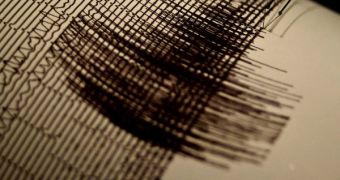According to a recent scientific study, it may be that experiencing (and surviving) an earthquake may have a number of side-effects on people, including damage to their brain function, even though they remain physically healthy. The investigation was conducted on survivors of the Wenchuan, China earthquake, which took place on May 12, 2008, and was led by an international team of scientists, featuring researchers from China, the United States and the United Kingdom.
The main goal of the research was to assess whether and how the human brain adapted to extreme amounts of emotional stress, such as that inflicted during an earthquake, when all reason was usually abandoned, and people experienced sights they never though possible before. Until now, such researches have only been conducted on animals. The team published its finds in the latest issue of the journal Proceedings of the National Academy of Sciences (PNAS), ScienceDaily reports.
In those studies, the limbic, paralimbic, striatal, and prefrontal structures inside the brain proved to play an important part in determining a test subjects' response to stress, pain, and danger. Other investigations, conducted on humans, focused only on patients who had been clinically diagnosed with the post-traumatic stress disorder (PTSD).
These researches show that, in humans, similar areas of the brain are affected by the same conditions. The new study was conducted on earthquake survivors, because 20 percent of them are very likely to develop the acute stress disorder (ASD) or the PTSD following their experiences. The 8.0-Richter-scale earthquake claimed the lives of 69,146 people.
“Given the serious and persistent impact of these highly prevalent psychiatric disorders, it is vital to develop a better understanding of the alterations of cerebral function evident in the early stages of adaptation to trauma. Such knowledge may lead to a better understanding of post-traumatic responses and the development of more effective early interventions,” King's College London (KCL) Institute of Psychiatry scientist Dr. Andrea Mechelli explains the role of the research.
“A better understanding of the impact of traumatic events on brain function may help us identify those in need of early treatment and reduce the long-term psychological impact in trauma survivors of national disasters, military conflict, and other causes of severe emotional distress,” the expert adds. The essential discoveries the team made show that those who experienced extreme emotional trauma showed hyperactivity in the same regions of the brain as those suffering from PTSD. The finds were made using a technique known as “resting-state” functional Magnetic Resonance Imaging (fMRI).

 14 DAY TRIAL //
14 DAY TRIAL //